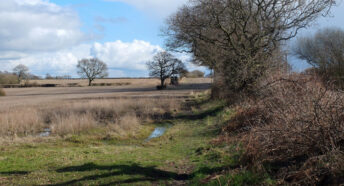Greater Manchester Spatial Framework: Economic Overview
The consultation on Greater Manchester’s Spatial Framework closed on 18th March. CPRE commissioned consultants to make an economic assessment of the Framework as it stands, which can now be downloaded from our website. While there are undoubtedly some very positive aspects to the revised plans, a number of issues remain.
CPRE’s response to the Greater Manchester Spatial Framework is still being finalised, but we broadly welcome a number of improvements in this version, such as the concentration of new development in city and town centres, the brownfield preference, a focus on and investment in integrated transport hubs, the creation of new Green Belt land and proposals to reduce the Green Belt loss originally proposed by half. Other important ambitions include proposals for a zero carbon by 2038 target, a linked policy of no shale gas exploration, and calls for air quality improvements.
However, there remain a number of issues which CPRE believes could be improved. There is more brownfield land available than is recorded in the brownfield registers, and accurately recording these sites would reduce the amount of Green Belt land for which the exceptional circumstances necessary for release could be demonstrated.
We welcome that the revised draft has 30,000 fewer dwellings, but think that this number could be further reduced, and also believe that jobs growth is too high. CPRE has commissioned an economic analysis (report can be downloaded below) to inform our response to the GMSF which demonstrates that the jobs requirement is too high.
We urge our members to bring their own local knowledge to the GMSF consultation by commenting about specific sites and raising issues relevant to planning, such as the benefits of land staying unbuilt, for example the local history, environmental health, people’s health and well-being from walking and other exercise, jobs in farming, wildlife and biodiversity, recreation in natural areas, residential amenity, etc.
It would also be of benefit to the accuracy of the plan if members can highlight specific issues such as any lack of local infrastructure capacity, particularly transport and community facilities, such as schools and doctors. If relevant refer to landscape character, highway safety, and any other material considerations. Planning policy should balance benefits and negatives to lead to sustainable development. If you think site development would be unsustainable in a particular location, do say so but please ensure that you give reasons why this is the case.
Download here: Greater Manchester Spatial Framework Economic Analysis








